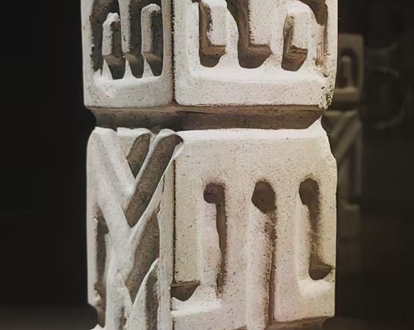Diego Tapia Figueroa, Ph.D. and Maritza Crespo Balderrama, M.
May 4, 2018
Many professionals from different fields: psychotherapy, education, organizations., tend to assume their roles as something that «should» be -if not perfect- at least the best without failing or making mistakes. They are often tyrannized by this social and personal duty; they tend to take competitive positions (be experts, accumulate prestige, money, power, and privilege) and engage in power struggles, fatuousness, and social careerism to demonstrate that they are essential. Between their own, exaggerated, expectations of perfection and the complex demands of those who seek their work or depend in some way on what they do, professionals in these fields are convinced that they have the mission of taking charge of the lives of others, that they must teach others to live, direct their existence, or «serve» them at the cost of their well-being. Hierarchical modernist practices, which end up burning these professionals -which may have good intentions- will mean living with anxiety, addictions, without freedom. Time bombs with power (self-destructive and toxic).
From a social constructionist perspective, Kenneth Gergen (2018) argues that this postmodern position is an exercise of freedom, a space for freedom. This makes us think of constructionism as an open, anti-dogmatic perspective, different from modernism; since it accepts its character as a space that welcomes diversity, capable of dialoguing with the existing pluralism. It is a place from which the multiplicity of voices and perspectives is invited to participate, as well as it is oriented to produce changes in the local cultures.
The question is: how to use these ideas, not only to liberate ourselves but to make them useful to society? In response, processes such as those that we have consistently developed for years, arise; new spaces of «caring for the caregiver» that seek to generate the need for each person involved in these issues to learn to be responsible for their self-care, mobilizing their social support and professional networks. By sharing knowledge and experiences, we are making an invitation to think about themselves outside the usual and repetitive technical and instrumental training, so that it is understood that:
1. It is important to talk with human and intellectual honesty about the relational and professional processes with which we are involved. Connecting humanely does not mean getting tied; popular wisdom says: «every savior ends up crucified.» It is about setting human limits that protect one’s integrity, dignity, autonomy, independence, and freedom: «we do the best we can with what we have.»
2. In the context of processes such as caring for the caregiver, when talking about social work, therapy, interventions, counseling, etc., it helps us to make it clear that one of the ways to protect ourselves -to take care of ourselves- is to do our job well, to do it professionally.
3. It is necessary to commit oneself to continuous training and study processes; permanent supervision; constant personal therapies; professional updating; participation in networks of common interests that have similar purposes. Having our own life outside of work.
4. It is necessary to propose a critical and self-reflection about the resources and strengths in oneself and its context, in others, and in the relationships in which we participate.
5. Keep in mind and recognize that the other is a valuable being only for its mere existence; that it knows, feels and lives, in the best way possible. For the same reason, it is a valid interlocutor, and, at the same time, it contributes to me as a human being. The dialogical relationship with the other transforms me.
Sheila McNamee (2016):
What if we see differences as a resource for creativity, novelty, and social transformation? In collaborative and dialogic practices -social constructionist – we do not seek to find consensus, but we do seek to create new forms of understanding. In order to create a space for conversations, it is necessary to appreciate differences, new possibilities, and new unimaginable worlds.
As facilitators of the processes of “caring for the caregiver”, from our experience, we seek to contribute with questions that go with critical and self-critical reflections: who are we, and how would we like to be? How and why are we going to collaborate in this space? How can we speak differently about our practices? Are there more perspectives? What do we contribute differently to this local context? How can we take care of our relationships, so that we can jointly create life, meaningful life? What kind of future can I contribute to? People are invited to new ways of understanding differences: that’s what dialogue is all about.
Social constructionism invites a critical stance, and involves curiosity about the different ways we can do things, involves an attitude of creativity and openness. Everything we do, say, and fight for, is something we make, and we give it meaning in the relationship. Therefore, this invites us to think that: if we work with people, can we see what people need? Because we have a responsibility to ask the views of others. Sheila McNamee (2017) proposes asking ourselves: what are we doing together? How are we doing this together? Who are we becoming as we do this? How can we build better social worlds?
We can choose between these 2 possibilities:
a) See the situations as already given.
b) Think that we can begin to build and connect different relationships.
Asking ourselves: what happened, how did the relationships that generated transformations come about? Kenneth Gergen (2018) emphasizes: “Make differences, even if they are small. Because when we share a different relational practice with other people, there is a positive contagion effect ”. Choose to live, co-building with intelligence and joy, well-being.

English translation of Bruno Tapia Naranjo

